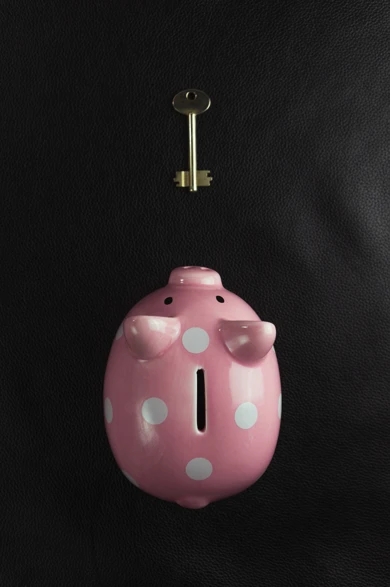 Written by: Danny Belton - Head of Lending
Written by: Danny Belton - Head of Lending
The Bank of Mum and Dad is a catch-all phrase to cover the concept of financial support from family when getting a mortgage. It usually applies to family (parents or grandparents) gifting part or all of the deposit for a house. While it can be a helpful way to get on the property ladder, there are also options for those who may not have the means, but still want to help.
Keep reading to discover how the Bank of Mum and Dad works, as well as how to ask your family for help with a deposit if you need it.
In this article
- What is the Bank of Mum and Dad?
- Different types of financial support from the Bank of Mum and Dad
- Advantages of using the Bank of Mum and Dad
- Disadvantages of using the Bank of Mum and Dad
- What are the hidden costs of borrowing from the Bank of Mum and Dad?
- What are the alternatives to using the Bank of Mum and Dad?
- How to ask the Bank of Mum and Dad for money
- How a mortgage adviser can help
- FAQs
What is the Bank of Mum and Dad?
The Bank of Mum and Dad is when parents offer financial support to help their children get a mortgage and move onto the property ladder. It can also apply to grandparents and other family members- so much so that some are now calling this the ‘bank of family.’ Having help to submit a larger down payment can significantly improve your mortgage approval chances and potentially secure you a more favourable interest rate.
The Bank of Mum and Dad is even considered one of the UK’s biggest lenders. According to Legal and General, 20231:
- 318,400 house purchases were supported by the Bank of Mum and Dad
- More than 50% of under 35s had help with buying their home
- Financial gifts from family totaled £8.1bn
“It is very common for parents to support their children with a deposit when they are able to,” explains Gareth Love, Director - MAB Regional Partner, Mortgage Advice Bureau. “Even if they are not able to afford the full deposit, many parents are willing to make a contribution to help.”
“We see all kinds of relatives helping people buy, however, the most common giftee’s are parents,” adds Kate Fuller, Business Principal, Mortgage Advice Bureau Crawley. “A lot of first time buyers we see are having some sort of assistance with deposits from family members - whether this the full deposit, or a couple of thousand pounds to help towards fees.”
Different types of financial support from the Bank of Mum and Dad
It’s important to note that this money or support from the Bank of Mum and Dad is not a loan, and can be given in a variety of ways.
“There are a number of ways that parents can raise money to support their children, not just through savings,” adds Gareth. “They may have options to raise money through their own property, including remortgaging and later life mortgages. Some parents may have investments or previous inheritance. To fully understand the options available, speaking to a mortgage adviser is often a great start.”
The Bank of Mum and Dad offers various forms of financial support and can go beyond just a lump sum of money. Not everyone is in a position to do so, but there’s still plenty someone could do to help:
Gifted deposits
This is the most well-known type of support from the Bank of Mum and Dad. The main thing about a gifted deposit is that it’s, quite simply, a gift, and you don’t need to pay it back. Lenders tend to prefer this, as it won’t impact your affordability.
A larger down payment can also significantly improve your mortgage approval chances, and potentially qualify you for lower interest rates. Once you have the money, you’ll need to ask your parents to write a letter detailing how much they’ll be gifting, and that the money does not need to be repaid.

Loans for a deposit
If your parents loan you money for a house deposit but expect repayment, it changes the dynamic from a simple gift from the Bank of Mum and Dad to a family loan. Your adviser will have to take these payments into consideration when working out how much you’ll have to repay in total. This includes both your mortgage and the loan to your family.
Mortgage guarantors
A close relative can act as a guarantor on your mortgage, and doesn’t involve them gifting or loaning you money from the Bank of Mum and Dad. In this case, the guarantor’s income is taken into account when working out how much the borrower can afford to borrow.
Having a mortgage guarantor does mean that you could borrow more than if you were able to when applying on your own, making you a more attractive borrower to lenders and potentially secure a better interest rate.
This does mean that if you can’t make your repayments, your guarantor will be expected to pay them on your behalf. They must be able to afford all of their own commitments and lifestyle, as well as your mortgage. The guarantor also has to use their own property as security, which means that if they cannot afford to make the mortgage payments on behalf of the buyer, both properties may be at risk.
Remortgaging
Remortgaging involves taking out a new mortgage on an existing property. The difference between the new loan amount and the existing balance is released as cash. Your parents can use the cash released from remortgaging their home to provide you with financial assistance for your house purchase.
What are the advantages of using the Bank of Mum and Dad?
There are a number of clear advantages to using the Bank of Mum and Dad for financial support if you’re in the position to do so. These include:
- Increased mortgage eligibility: A larger down payment from the Bank of Mum and Dad can significantly improve your chances of getting a mortgage approved. A bigger deposit means your loan-to-value ratio (LTV) is lower, making you a less risky borrower in the eyes of lenders
- More favourable mortgage rates: A lower LTV can also qualify you for more favourable mortgage interest rates. This can save you a substantial amount of money over the entire mortgage term, as well as resulting in lower monthly mortgage payments
- Bigger choice of products and property: A bigger deposit may mean you may be entitled to a wider range of mortgage deals, and be able to browse properties that were previously outside of your budget.
What are the disadvantages of using the Bank of Mum and Dad?
There are some things to consider when using the Bank of Mum and Dad, from having difficult conversations with family to stricter lending criteria. Here’s what you’ll need to think about if this is something you’re in a position to do:
- Family dynamics: Talking about money can be challenging, and depending on your family situation, you may have to navigate negotiating a specific amount if you have siblings to contend with
- Potentially stricter lending criteria: Some mortgage lenders will count borrowed deposit repayments as part of an affordability assessment and will lend you less as a result
- Additional debt: If using the Bank of Mum and Dad involves a loan, you'll have additional debt on top of your mortgage, increasing your monthly financial obligations.
What are the hidden costs of borrowing from the Bank of Mum and Dad?
The financial burden of a large gift could have an impact on your donor’s finances, so you want to be sure they’re in the right position to help. You don’t want your family to have to cut back or not be able to meet their own financial goals. You should therefore ensure everyone involved has clear expectations about the purpose of the loan or gift, repayment terms (if applicable), as well as the potential tax implications. You'll need to speak to a solicitor about any potential tax implications this may involve.
What are the alternatives to using the Bank of Mum and Dad?
While the Bank of Mum and Dad can be a helpful resource, there are several alternatives to consider when buying property if this option isn’t available to you.=
- Incentive schemes - there are a range of government-backed and developer incentive schemes available for those looking to get on the property ladder. This ranges from support with your deposit (such as Deposit Unlock) the mortgage guarantee scheme, which makes it possible to buy a property with only a 5% deposit.
- Shared Ownership - With Shared Ownership you buy a portion or the property and pay rent on the rest. This could make it possible for you to buy a house with a smaller deposit and steadily work towards full ownership
- Speak to a broker - a mortgage broker will be able to shop around for products that are tailored to your individual circumstances, including deals that aren’t available on the high street. They can also talk you through the various options and routes available to you to ensure you reach your homeownership goals.
How to ask the Bank of Mum and Dad for money
Approach the conversation with honesty, respect, and sensitivity. Start by expressing your gratitude for their support, and acknowledge that talking about financial matters can be difficult.
Be sure to clearly outline your goals and the specific help you need. Is it a deposit, a loan, or a guarantor arrangement? Make sure you’re ready to provide details and information about your personal financial situation, including your income, expenses, and savings. This shows that you’re responsible and committed to achieving your homeownership goals.
Listen to any concerns they may have and be open to their perspective, since they may have questions or reservations. Make sure that you’re approaching the conversation from a place of collaboration, not expectation.
“We would always recommend honesty, just asking the question, and explaining how having a gifted deposit could help you, and what kind of property it would help you buy,” agrees Kate Fuller, Business Principal, Mortgage Advice Bureau Crawley. “However, at the same time, be prepared that it might be something your parents are just not able to help with.”
If this is the case, speak to a mortgage adviser about the options available to you.
How a mortgage adviser can help
A mortgage adviser is more than just a helpful guide if you’re buying a home for the first time. They’re an invaluable resource, since they understand the mortgage market and can assess your finances to help find solutions that work for you.
Our advisers are perfectly placed to help you with any of your concerns and can offer advice and guidance about every aspect of the mortgage journey and beyond.
If you have questions about the Bank of Mum and Dad, want to explore getting started on your homebuying journey, or just have questions, then we’re here to help!
References:
Frequently asked questions
Borrowing from family is absolutely normal and is often seen as a way for them to support each other and achieve shared goals. However, it's crucial for both parties to have clear communication about expectations, repayment terms, and potential tax implications. Openness, honesty, and a written agreement can help ensure a smooth experience for everyone involved.
Borrowing money is only a red flag if it's excessive, used for frivolous spending, or hidden from family/significant others. With this in mind, open communication and a clear repayment plan are key. If you’re unsure about whether borrowing money is the right option for you, it’s worth speaking to a mortgage adviser.
The main disadvantage of borrowing money from family is the potential it has to put strain on relationships. Unclear terms about repayment or interest can breed resentment. The loan might strain their finances, causing feelings of guilt. Make sure that all involved parties are clear on their financial responsibilities prior to agreeing to borrow money.
No, a loan from parents isn't a gift. A loan implies the expectation that you'll pay back the money, often with interest. Gifts, on the other hand, involve no repayment.
You may be liable to pay tax on a loan from a family member, but speaking to a tax specialist about any concerns or queries you may have regarding potential tax implications is the best course of action.
Parents can protect a house deposit gift for their child in a few ways:
- Clear communication: Discuss financial expectations and responsibilities upfront. Is it a gift, or a loan with repayment terms?
- Formalise the gift (optional): A written document outlining the amount and stating that it's a gift can prevent misunderstandings later.
- Declaration of trust: If the child is buying with a partner, a declaration of trust clarifies that the gifted money belongs solely to the child.
Important information
Your home may be repossessed if you do not keep up repayments on your mortgage.
There may be a fee for mortgage advice. The actual amount you pay will depend on your circumstances. The fee is up to 1% but a typical fee is 0.3% of the amount borrowed.




